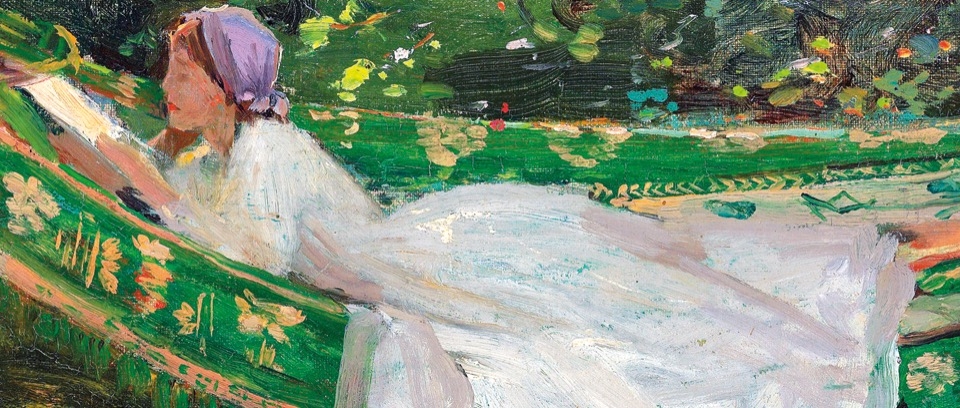- Home |
- Search Results |
- Summer: a simple love story, or a stealth feminist manifesto?

Edith Wharton’s Summer is a radical feminist manifesto novella, though it is rarely perceived this way. Wharton herself – due to her status as an affluent woman from a genteel New York family – is often misread as a ‘proper lady novelist’. But she is a secret renegade. In the character of Charity Royall, Wharton constructs an almost supernaturally empowered defender of female sexual integrity. Charity is portrayed as a sexual avenger with ‘her own revolts and defences’.
The story is, on its surface, simple: Charity Royall was, rather mysteriously, adopted by Lawyer Royall, a dour, negative authority figure, and his now-deceased wife. The girl was taken from her impoverished mother and brought up in the small hamlet of North Dormer, where nothing ever happens and from which no one ever seems to escape.
Lucius Harney comes to town and awakens Charity from a state that is described as a kind of dormancy. Predictably enough, given how Harney is portrayed, as a classic seducer, Charity has a sexual affair with him. Indeed, she is technically ‘ruined’ by Harney. But Charity consistently upends stereotypes of female victims of male sexual lust, and female victims of patriarchy in general.
Though Charity Royall is portrayed as totally powerless, this is consistently a story about female power and resistance. Charity is, superficially, disenfranchised. She is a poor young woman with no education. She is completely dependent upon Lawyer Royall; with no relatives, mentors or professional options. But in spite of this dependency, she reveals a blazing allegiance to her own perceptions and personal safety, and to her insistence on her right to autonomous sexuality. By feeling how she feels, the reader accompanies Wharton in imagining how heroines in a freer future for women might think and feel.
Charity consistently upends stereotypes of female victims of male sexual lust, and to female victims of patriarchy in general
She valorises her mother as the source of her true lineage – and not her abusive adopted father/lover. She questions the contempt in which her mother, a sex worker, is held. ‘What did it matter where she came from, or whose child she was, when love was dancing in her veins, and down the road, she saw young Harney coming toward her?’ Charity asks herself.
Charity claims her history proudly, even though her mother is an archetypal ‘fallen woman’. Harney and Charity Royall go up into ‘the Mountain’; this is described as a place where outcasts and impoverished people live in meagre conditions, in a state of social chaos, in profligate sexual arrangements, outside of respectable social norms. But Charity refuses to disavow her antecedents: ‘I ain’t – I ain’t ashamed. They’re my people, and I ain’t ashamed of them,’ she sobs. Even when her guardian calls her a whore, she refuses his definition: ‘It helps me not to care a straw what lies you tell about me,’ she retorts.
Wharton describes female sexual desire in positive terms. In the scenes of lovemaking between Charity and Lucius Harney, Wharton depicts Charity as being reborn through a sexual awakening. She describes this deflowering as an intensification of personal growth and awareness, not, more conventionally, as a loss of feminine value or moral integrity: ‘The only reality,’ writes Wharton, ‘was the unfolding of her new self, the reaching out to the light of all her contracted tendrils’.
Charity has allegiance to her own life experience. She refuses to split off from her own consciousness, experiences that the world would deride as demeaning or as inappropriate. Even when she understands that she is pregnant, she does not abandon the experience she has gained. She maintains throughout the narrative an internally-oriented moral compass.
At the time Wharton was writing, there were no alternative endings if a woman dared step out of her constrained sexual role
Harney, of course – true to his role as the conventional seducer – does eventually leave Charity. But again, Charity faces the truth of her situation without regret: ‘She had given him all she had – but what was it compared to the other gifts life held for him? She understood now the case of girls like herself to whom this kind of thing happened. They gave all they had, but their all was not enough; it could not buy more than a few moments’.
At the time Wharton was writing, there were no alternative endings if a woman dared step out of her constrained sexual role. After this crisis, there is indeed no exit for Charity; her would-be abuser/father/lover, Lawyer Royall, comes to get her back.
Sadly, Charity gives in: ‘For the most part she had only a confused sensation of slipping down a smooth and irresistible current; and she abandoned herself to the feeling as a refuge from the torment of thought’. Reader, she marries him. The deed is done, in an atmosphere of ‘unreality’.
The ending is implausible: Wharton has Charity concede, improbably, that Lawyer Royall is a good man after all. Yet up until the last three or four pages of the novella, when the punishments for female sexual assertion inevitably introduce themselves, Wharton has succeeded in creating one of the first fictional polemicists for female sexual rights.